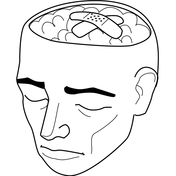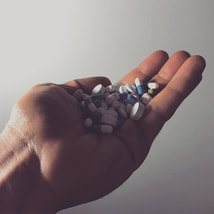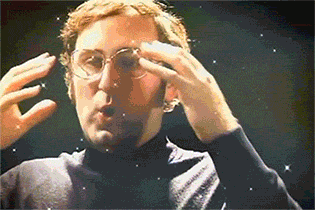|
By Juliana Crescenzo I was lying in bed, my covers clung to my body; I was their prisoner. Three hours had passed since my alarm clock went off and I still wasn’t able to will my body to get up and be productive. My list of things to do became longer every day and I was stressed out beyond belief, but I could not move from that bed.  Image via Pixabay Image via Pixabay
As a society, we tend to sweep mental health under the rug because it’s easier than talking about about it. When we give names to our monsters—Depression, Anxiety, Bipolar Disorder, Eating Disorders, Obsessive Compulsive Disorder, Post-Traumatic Stress Disorder—they become real and alive, and are no longer just the Albatrosses we’ve been secretly struggling to carry in our minds. When it comes to mental health, either you are recovering, you are relapsing, or you are dying.

If you’re anything like I am, I’m sure you don’t want another prescription pill to add to your already too-long list of medications. Then, of course, there are the side effects that come with each pill, which are sometimes worse than the actual problem that is being treated. Instead, imagine being able to get a reading prescription from your doctor. Not another pill to swallow, but something to change your toxic way of thinking.
Have you heard of Bibliotherapy? I’m pretty sure many of us haven’t, I’ve recently only found out about it. Bibliotherapy is a different type of therapy, an expressive therapy that encourages the use of literature to promote good mental health. Good Therapy states, “Storytelling, creative writing, and reading have long been recognized for their therapeutic potential. The use of literature as a healing method dates back to ancient Greece, when Grecian libraries were seen as sacred places with curative powers.” If this solution has been around for centuries, why is it that so many of us have never even heard of the term Bibliotherapy? Why is this not a more common prescription from our doctors? 
It finally dawned on me the other day that the problem isn’t that doctors are quick to push pills, but that maybe I just wasn’t listening to everything they said. The only thing we usually leave the doctor’s office with is a prescription to take to our pharmacies, but what about all of the advice that they gave us during our visit? Sometimes, they throw so much information at us that we leave our appointments more confused than when we came in. Every session, my therapist rattles off the titles of books that I should look into. She isn’t so quick to scribble on her prescription pad, as she knows how I feel about medication. She actually listens to my endless rants and prescribes books for me to read that she believes will benefit me. Maybe it would feel more like a prescription if the book title was written on her pad. I think that my librarian may have a harder time deciphering her chicken scratch than my pharmacist does.
This doesn’t mean that you should just pick up any old book that you see and read a few pages. According to Zipora Shechtman, “Affective bibliotherapy uses fiction and other high-quality literature to help the reader connect to emotional experiences and human situations through the process of identification.” Through reading certain books, we’re able to identify certain emotions and maybe even figure out how to handle them. It’s like feeling better after having a long cry, like the weight of the world has been lifted from our shoulders. It’s almost as if we have to deal with our emotions instead of just suppressing them with medication. 
I have a confession to make: I haven’t read a book for leisure in six months, even though I love to read. I used to read two books at a time and finish them in a week. I also love to write, mainly poetry. I love allowing myself the chance to free my brain of all rational thought and just write until I have nothing left to say. I wrote my first poem last week for the first time in six months. I still love literature. I love to wander through libraries, pick up books and read their summaries, but every time I try to check one out something in my brain stops me and I feel guilty for even considering checking out a book that isn’t related to school. If something is prescribed to me by a doctor, I don’t usually have feelings of guilt because they are trying to help me. Maybe it’s time to actually listen to what most of our doctors have been trying to say for so long.
I know some of us may be skeptical to allow a stranger, or even your therapist, to choose our literature for us. Ceridwen Dovey from The New Yorker decided to give it a try, and said, “I worked my way through the books on the list over the next couple of years, at my own pace—interspersed with my own 'discoveries'—and while I am fortunate enough to have my ability to withstand terrible grief untested, thus far, some of the insights I gleaned from these books helped me through something entirely different, when, over several months, I endured acute physical pain. The insights themselves are still nebulous, as learning gained through reading fiction often is—but therein lies its power.” Maybe I should have picked up a book in the library instead of letting guilt overpower me. We all have other responsibilities to attend to, but shouldn’t our mental health be at the top of our to-do lists? Punishing yourself by taking away what you love to do won't help. Go to your local library. Get lost amongst the stack of books. Most importantly, read until you feel better.
0 Comments
Leave a Reply. |
Archives
April 2024
Categories
All
|
|
Glassworks is a publication of Rowan University's Master of Arts in Writing 260 Victoria Street • Glassboro, New Jersey 08028 glassworksmagazine@rowan.edu |
All Content on this Site (c) 2024 Glassworks
|

 RSS Feed
RSS Feed
